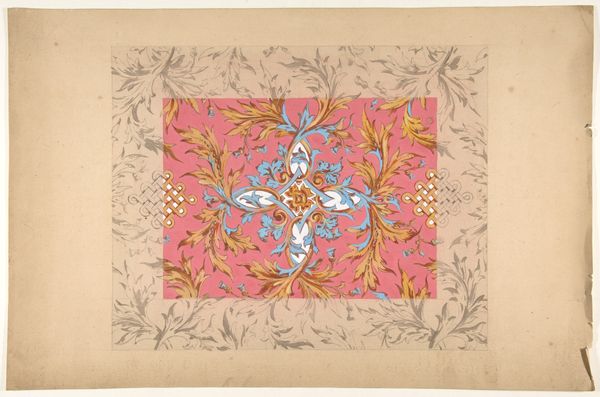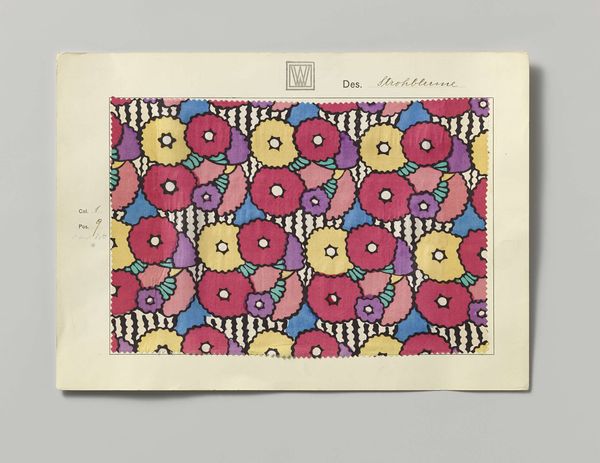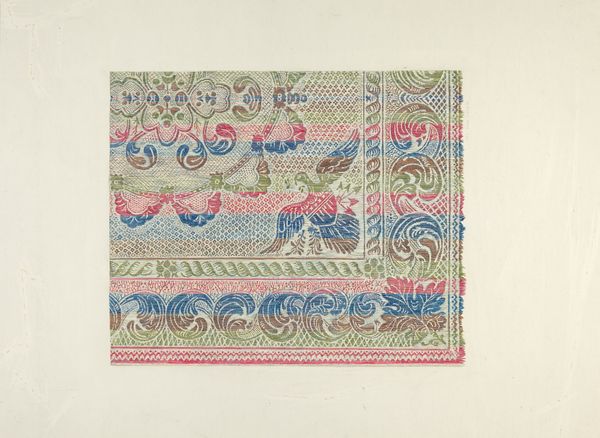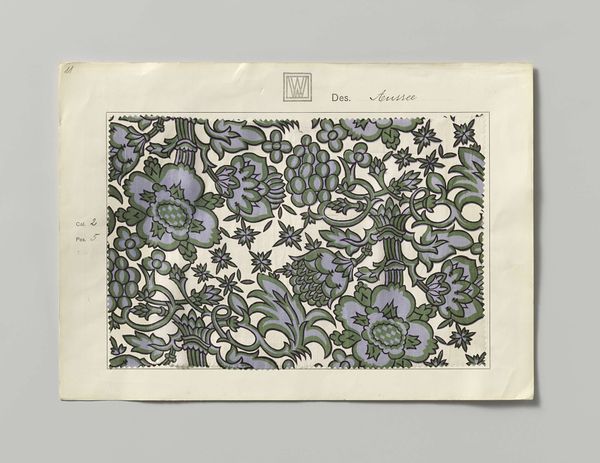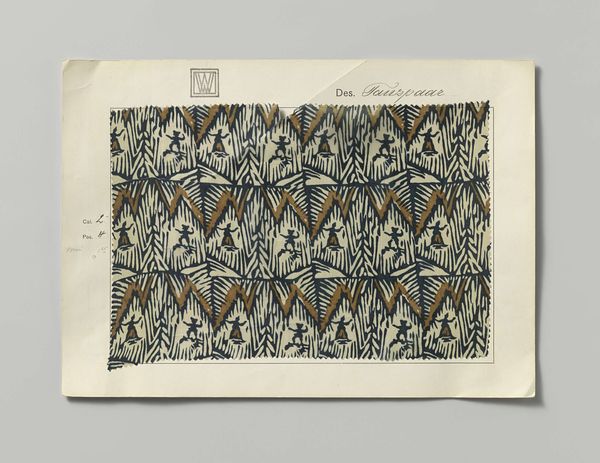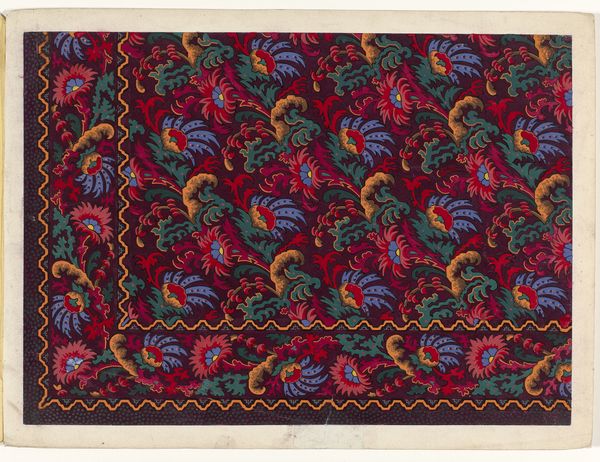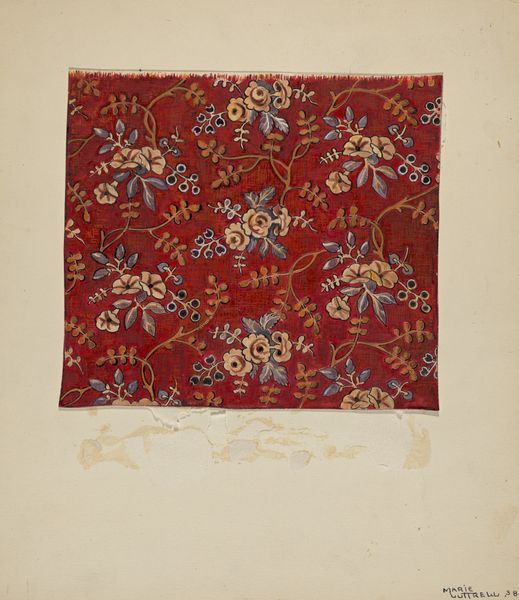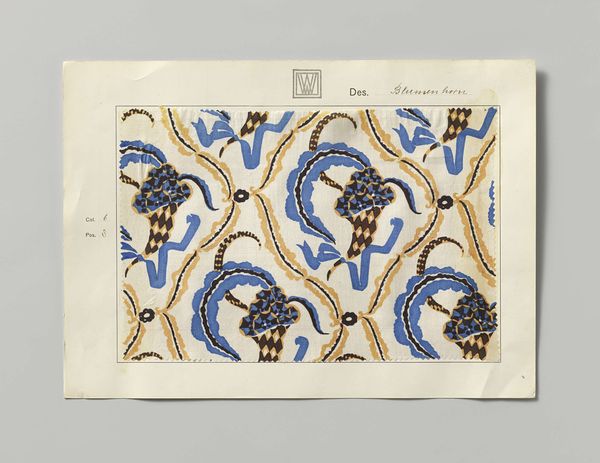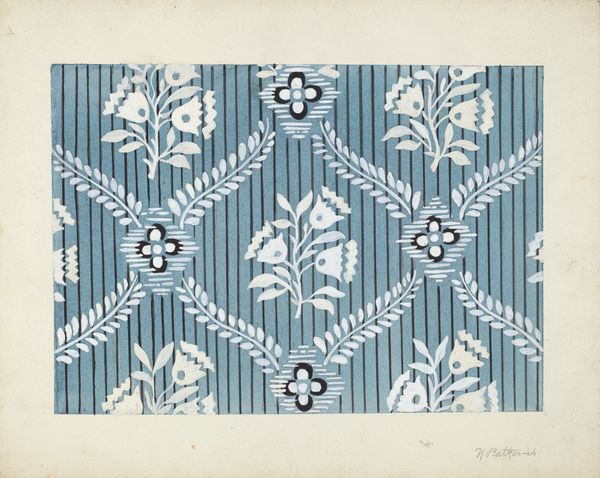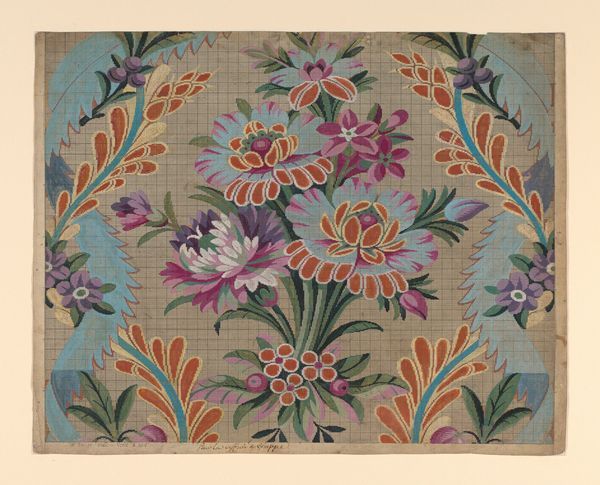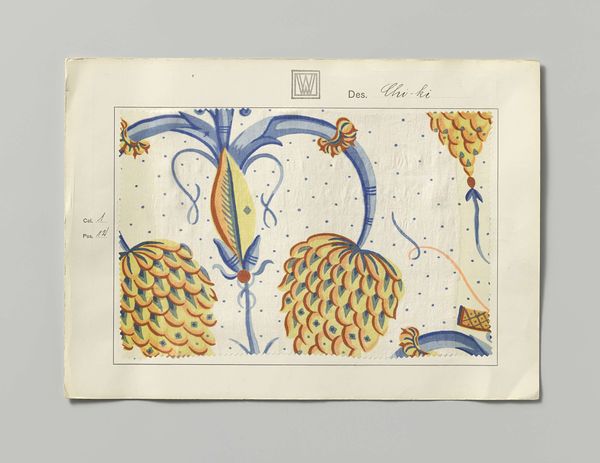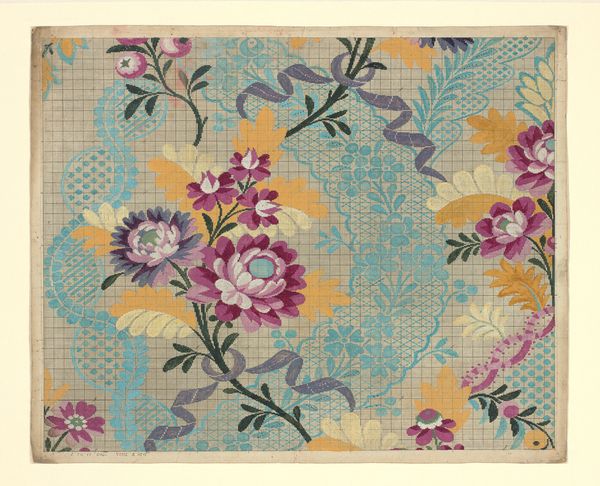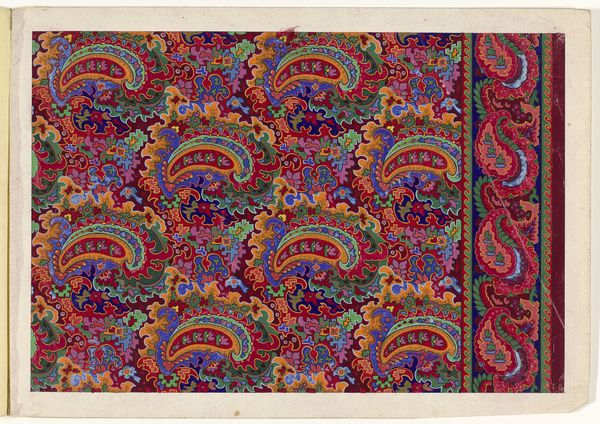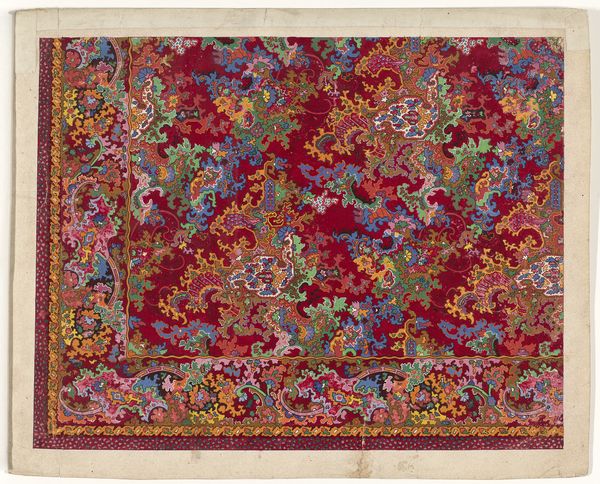
#
print print-like
#
paper non-digital material
#
fashion mockup
#
studio lighting mockup
#
presentation design mockup
#
personal journal design
#
children publication design
#
publication mockup
#
design mock up
#
studio mock-up
Dimensions: height 25 cm, width 35 cm, height 18.5 cm, width 27.7 cm
Copyright: Rijks Museum: Open Domain
Editor: So, here we have "Staal met bedrukte zijde, dessin Iselberg," a printed silk fabric sample created between 1912 and 1917 by the Wiener Werkstätte. It strikes me as quite vibrant for its time, with these bold floral motifs. What catches your eye? Curator: What interests me are the production methods implied here. This isn't just art; it's applied art. Think about the labor involved: the design process, the preparation of the printing blocks, the weaving and dyeing of the silk itself. How does the industrialization of textile printing impact the role of the artisan? Editor: That’s interesting! I hadn’t really considered the industrial side of things. Curator: And consider the social context! The Wiener Werkstätte aimed to bridge the gap between art and craft, but were they truly successful? Did these designs reach a wide audience, or were they largely consumed by the elite? What does it say about the intended consumer, the rise of department stores, and even colonial sourcing for labor and materials? Editor: So, it's less about the individual flower, and more about what its creation and distribution signifies in a wider system? Curator: Precisely. We need to consider the material conditions of its production and consumption to truly understand its meaning and value. The seemingly decorative holds radical implications once interrogated through a materialist lens. Editor: This has made me rethink the Wiener Werkstätte entirely. Thanks! Curator: My pleasure. Analyzing the raw materials and socio-economic networks invariably offers an entry point into interpreting art with an eye for social and labor context.
Comments
No comments
Be the first to comment and join the conversation on the ultimate creative platform.
